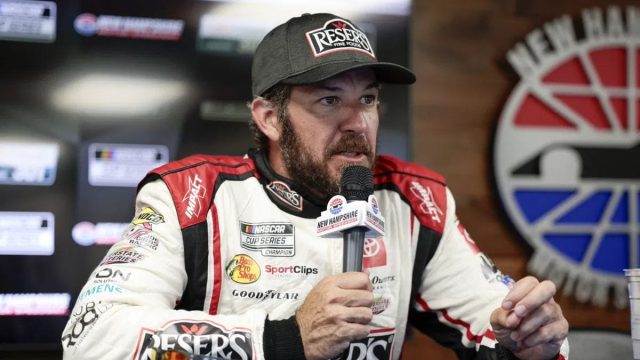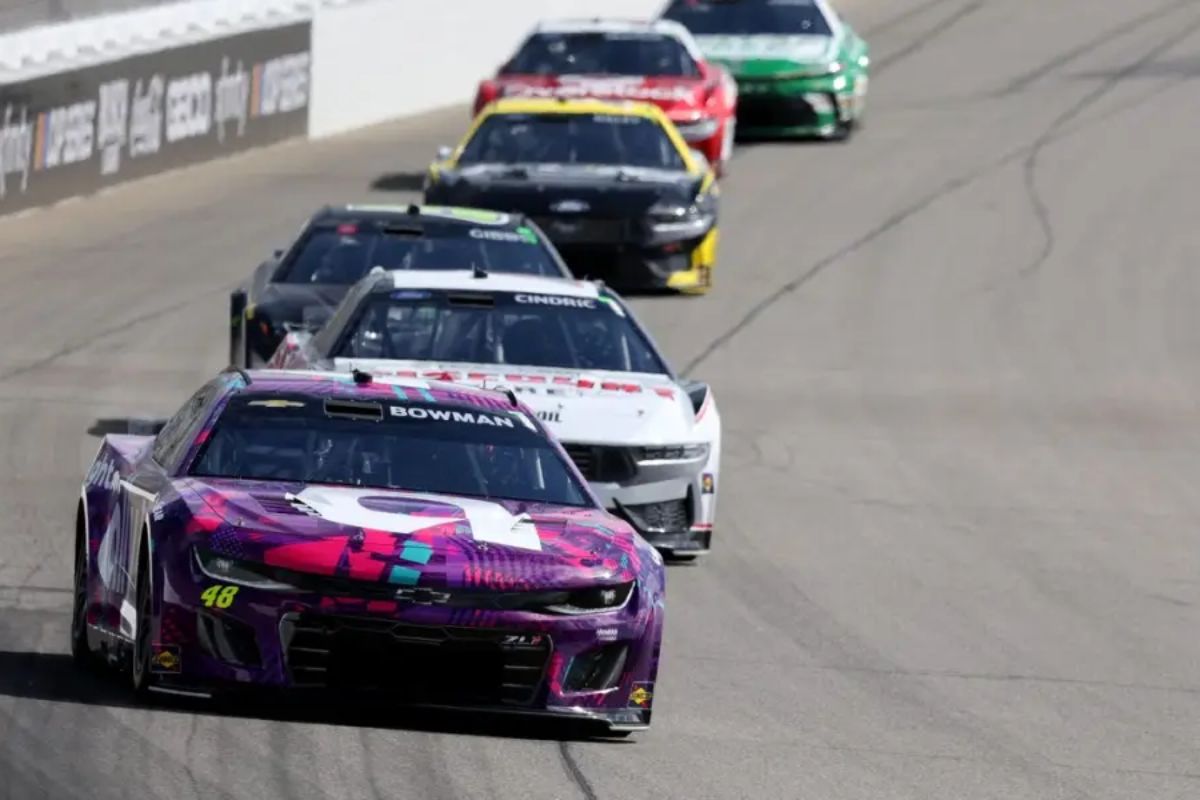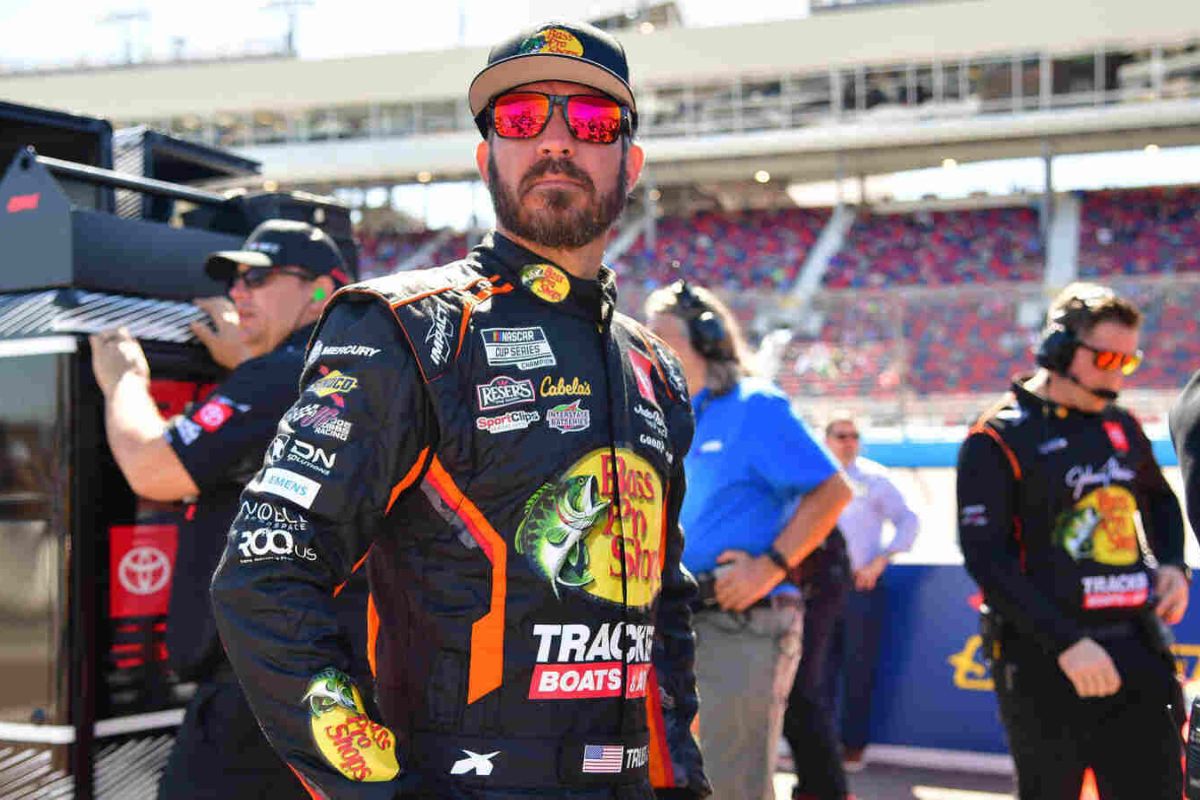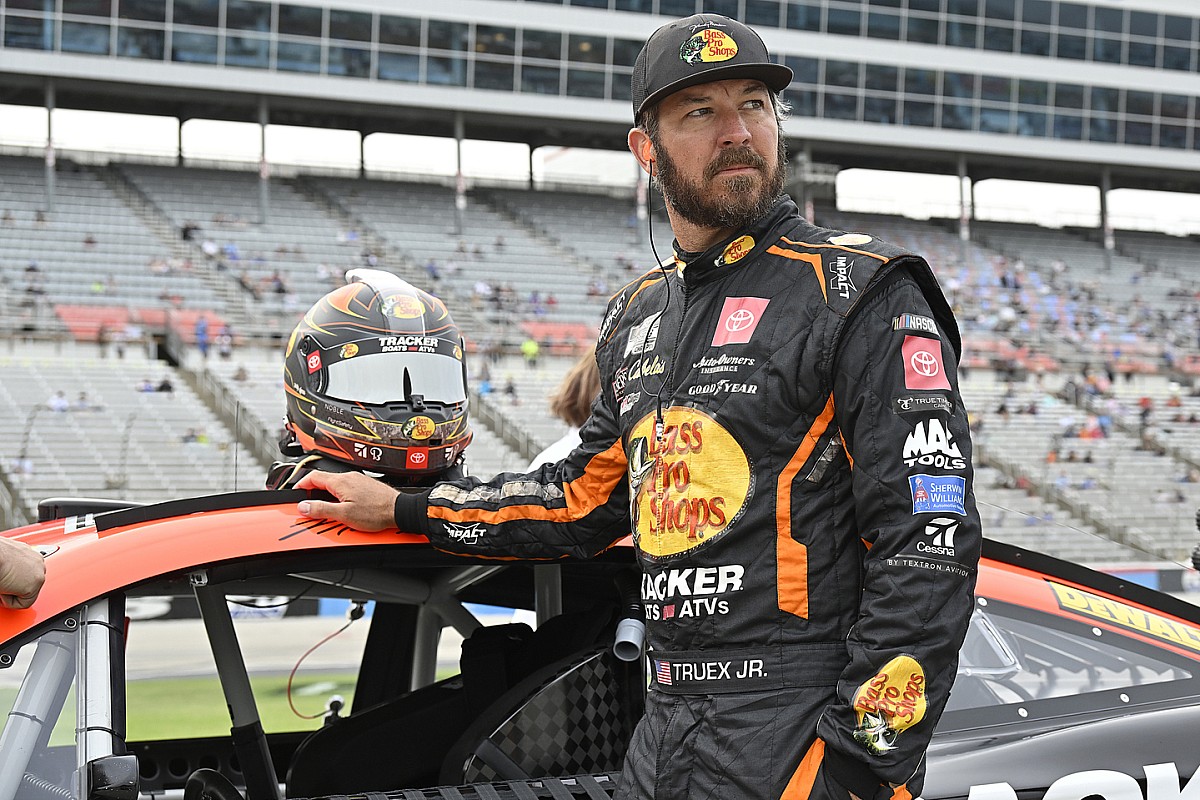Martin Truex Jr. on Bristol Heartbreak: In the wake of the Bristol race, Martin Truex Jr.‘s candid critique of NASCAR’s rulebook raises critical questions about the integrity of competitive racing. His disappointment reflects a personal sense of loss and highlights a broader issue: the perceived lack of clarity and consistency in the regulations governing the sport. With tire wear playing a pivotal role in the controversial finish, Truex’s insights prompt a necessary examination of how enforcement inconsistencies can reshape race outcomes. What implications might this have for the future of NASCAR, particularly as drivers like Truex contemplate their ambitions and strategies moving forward?
Key Highlights
- Martin Truex Jr. expressed frustration over NASCAR’s inconsistent penalties, particularly after the controversial finish at Bristol.
- He highlighted that penalties should differentiate between intentional infractions and mistakes beyond a team’s control.
- Truex criticized the rulebook for its lack of clarity, which can significantly impact race outcomes.
- His emotional reaction during the cooldown lap emphasized the human element in competitive racing and the desire for fairness.
- Truex advocates for clearer rules to ensure competitive integrity and restore trust among teams in NASCAR’s enforcement practices.
NASCAR’s Recent String of Penalties
NASCAR’s recent string of penalties has sparked a heated debate within the racing community, revealing a complex interplay between the enforcement of rules and the spirit of competition. The governing body has taken decisive action against infractions, as evidenced by the penalties imposed on Austin Dillon for his double shove at Richmond, and Denny Hamlin’s uninspected engine following his Bristol victory.
While the penalties against Dillon are generally perceived as appropriate, Hamlin’s sanctions have drawn considerable examination, showing a potential inconsistency in NASCAR‘s disciplinary approach. The backlash against Hamlin’s penalty is particularly telling, as even his teammate, Martin Truex Jr., expressed doubts about the fairness of the ruling.
This sentiment resonates throughout the NASCAR community, where questions about the proportionality and transparency of penalties are increasingly prevalent. The juxtaposition of Dillon’s clear violations with Hamlin’s more nuanced situation raises fundamental issues regarding the interpretation of rules and the rationale behind punitive measures.
NASCAR’s stringent enforcement may be intended to uphold competitive integrity, yet the implications of such penalties can inadvertently undermine the spirit of racing. When drivers and teams feel that decisions are arbitrary or excessively harsh, it can foster a climate of distrust, stifling the very essence of competition that the series seeks to promote.
Martin Truex Jr.’s Perspective on Denny Hamlin’s Penalty
Expressing concern over the recent penalty imposed on Denny Hamlin, Martin Truex Jr. has emerged as a voice of reason within the NASCAR community. Truex’s perspective sheds light on the complexities of NASCAR’s penalization system, particularly as it relates to the issues surrounding team accountability and individual culpability.
In the wake of notable penalties levied against drivers like Austin Dillon and Joey Logano, Hamlin’s penalty appears to diverge sharply from the precedent set by previous rulings. Truex highlights the disparity in penalties, noting that while Dillon faced a loss of playoff eligibility and point deductions for actions deemed intentional on the track, Hamlin’s punishment stemmed from an organizational oversight rather than driver misconduct.
The 75-point deduction and fine for Hamlin’s crew chief, Chris Gabehart, raises questions about whether the penalties are proportionate to the infractions committed. Truex underscores that the integrity of the sport hinges on consistent enforcement of the rules.
Moreover, Truex acknowledges the statement from David Wilson, President of Toyota Racing Development, which absolves Hamlin’s team from any direct wrongdoing. This acknowledgment raises critical questions about the effectiveness of NASCAR’s regulations and the potential for penalizing teams for errors beyond their control.
Truex’s insights call for a reevaluation of the rules to guarantee a level playing field, advocating for a balanced approach that distinguishes between intentional infractions and genuine mistakes. In doing so, Truex articulates a vision for a more just and equitable NASCAR landscape.
Truex’s Take on the Controversy
Martin Truex Jr. has positioned himself as a thoughtful commentator amid the swirling controversy surrounding Denny Hamlin’s penalty, emphasizing the nuances of accountability in NASCAR. He articulated his sentiments regarding the situation, recognizing the implications of the sanction not just for Hamlin but for the integrity of the sport itself. “It was a big oops,” Truex remarked, highlighting the unfortunate circumstances that have befallen his teammate. He expressed empathy, noting that the #11 team was not at fault for the mishap, yet they bore the brunt of the consequences.
“I mean, obviously, it was a big oops but yeah, got to feel for them you know, him and his team. Just because it literally had nothing to do with them.” – Truex
In a moment of candid reflection, Truex articulated the inherent challenges within the NASCAR rulebook. He acknowledged the dissonance in penalizing a team for an error that stemmed from an engine manufacturer, leading to questions about the fairness of such decisions. His remarks prompt a deeper analysis of accountability in racing, particularly in how penalties are enforced when the source of the mistake is not directly tied to the team involved.
Yeah I don’t really know. Somebody else was asking me, ‘Why did they penalize them?’ I’m like, ’cause they didn’t know what else to do.’ Like it was the #11s engine, so I guess that’s what kind of put him in that spot… I mean it was obviously, an honest mistake because they came forward with it. But I don’t know really what’s right. It doesn’t feel right, but somebody’s got to take the fall. So I don’t know how else you do it.” – Truex
To better visualize the situation, consider the following table outlining key aspects of the controversy:
Truex’s insights reveal a layered understanding of the complexities that challenge both drivers and governing bodies in NASCAR.
The Fallout from the Bristol Race and Truex’s Perspective
The aftermath of the Bristol race has left a palpable tension within the NASCAR community, particularly for Martin Truex Jr., who found himself at the center of a controversial finish. The race, marked by unusual tire wear, culminated in a scenario that saw Truex lose his cool after Denny Hamlin’s decisive jump on the final restart.
Truex’s reaction on the cooldown lap, where he vented his frustrations by making contact with Hamlin’s car, demonstrates the emotional toll such races can exact on drivers. His subsequent remarks, delivered with a hint of sarcasm, reveal a layer of complexity in his feelings toward the penalties imposed on the #11 team, which NASCAR officials have maintained were unwarranted.
“I honestly never even thought of that. But maybe that would have been better.”
“Yeah, I don’t know…it’s just a tough situation for everyone.” – Truex
When asked if he would have preferred a disqualification instead of finishing third, Truex’s quip hinted at a deeper dissatisfaction with how the situation unfolded.
The implications of this race extend beyond mere performance; they reflect the ongoing struggle for fairness and clarity within NASCAR’s rulebook. Truex’s perspective highlights the need for accountability, not just for competitors but for the regulatory framework itself.
As the NASCAR community processes the fallout from Bristol, Truex’s experience serves as a poignant reminder of the human elements at play in a sport driven by both passion and precision.
Truex’s Daytona Aspirations and Hints at 2025 Plans
With aspirations for victory at Daytona International Speedway, Truex finds himself at a pivotal juncture in his career. This weekend presents an opportunity not only to clinch a coveted win at a track that has eluded him but also to solidify his playoff prospects. Despite engine issues plaguing his #19 Toyota Camry XSE earlier this season, Truex remains focused on the bigger picture, demonstrating resilience that defines his nearly two-decade-long tenure in NASCAR.
Moreover, Ryan Truex’s recent triumph at Daytona adds a familial dimension to this weekend’s race. A potential Truex family sweep would provide a heartwarming narrative that could propel Martin into the playoffs, should he secure a win. However, qualifying in P17 may cause skeptics to question his chances, yet the unpredictable nature of drafting at Daytona could turn the tide.
In a recent press conference, Martin hinted that his 2025 plans are “all but done,” igniting speculation about his future in NASCAR. While the specifics regarding his brother’s 2025 team remain uncertain, the potential for continued Truex legacy at Daytona promises an exciting chapter ahead for both drivers.
News in Brief: Martin Truex Jr. on Bristol Heartbreak
The events surrounding the Bristol race shows the urgent need for improved clarity and consistency within NASCAR’s rulebook. Martin Truex Jr.’s critique highlights the detrimental effects of regulatory ambiguities on competitive fairness and race outcomes. As the sport evolves, addressing these shortcomings will be vital for maintaining integrity and ensuring that all participants can compete on an even playing field. Ultimately, a commitment to clearer regulations will be fundamental for safeguarding the future of NASCAR competition.
ALSO READ: Martin Truex Jr. Teases 2025 Daytona 500 Return: What’s Next for the Retiring Star?



